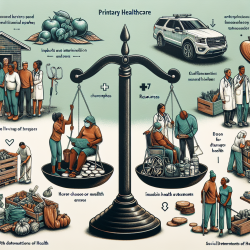Understanding Kidney Transplantation: Insights from Patient Perspectives
Kidney transplantation is a life-saving procedure for patients with end-stage kidney disease, yet the shortage of donor kidneys remains a significant challenge. The research article "Waitlisted and Transplant Patient Perspectives on Expanding Access to Deceased-Donor Kidney Transplant: A Qualitative Study" sheds light on the perspectives of patients who have received or are awaiting a less-than-ideal (LTI) kidney transplant. This study provides valuable insights for practitioners aiming to improve patient outcomes and expand access to kidney transplants.
Key Findings from the Study
The study conducted in Saskatchewan and Manitoba involved interviews with patients who had either received an LTI kidney or were awaiting a transplant. Four major themes emerged:
- Patient Awareness and Understanding: Patients demonstrated a clear understanding of their clinical situation, the risks and benefits of transplantation, and the scarcity of donor kidneys.
- Desire for Information: Patients expressed a need for transparent, clear, and standardized information to make informed decisions about accepting an LTI kidney.
- Desire for Freedom from Dialysis: Many patients viewed transplantation as a means to escape the constraints of dialysis and improve their quality of life.
- Trust in Healthcare Providers: Trust in physicians and the healthcare system was crucial for patients when considering an LTI kidney transplant.
Implications for Practitioners
For practitioners, these findings underscore the importance of patient-centered care and informed decision-making. Here are some actionable steps to consider:
- Enhance Patient Education: Provide patients with comprehensive, clear, and standardized information about the risks and benefits of LTI kidneys. This will empower patients to make informed decisions and increase their trust in the healthcare system.
- Foster Trust: Build and maintain trust with patients by being transparent about the quality and prospects of donor kidneys. Encourage open communication and involve patients in the decision-making process.
- Respect Patient Autonomy: Allow patients to exercise their autonomy by offering choices and respecting their decisions. This approach can lead to better patient satisfaction and outcomes.
Encouraging Further Research
The study highlights the need for further research to explore diverse patient perspectives and enhance the generalizability of findings. Practitioners are encouraged to engage in research that investigates the educational needs and preferences of patients from various backgrounds, including those who may be underrepresented in current studies.
By implementing the insights from this study and conducting further research, practitioners can contribute to expanding access to kidney transplants and improving patient outcomes. To read the original research paper, please follow this link: Waitlisted and Transplant Patient Perspectives on Expanding Access to Deceased-Donor Kidney Transplant: A Qualitative Study.










